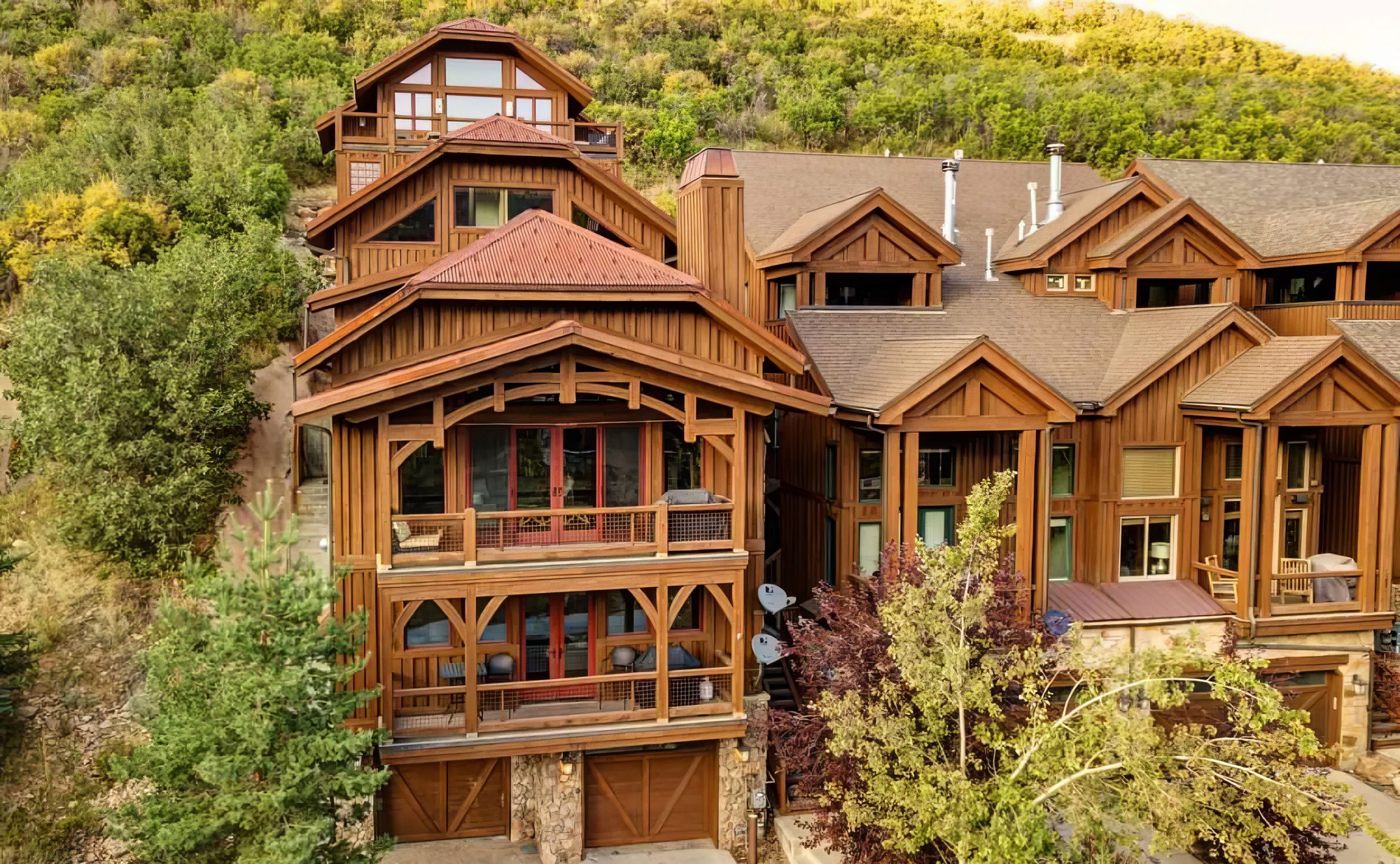The broad category of “destination clubs” encompasses a variety of business models that offer their members lodging in a collection of homes in a variety of locations. Various publications have differing definitions of what constitutes a destination club.
In recent years, the distinctions have become even murkier with the introduction of private equity funds that combine investor ownership of vacation homes with destination club travel privileges. These are sometimes called “equity destination clubs”.
History of the Shared Ownership Category
Introduction of Fractional Ownership
Steve Dering, an Equity Residences Director, pioneered the business of shared ownership of luxury vacation homes in the early 1990s. As a member of top-rated Deer Valley Resorts’ first executive team, Steve noticed that most of the wealthy people who bought very expensive Deer Valley homes only occupied them three to five weeks per year. Most of the homes sat empty the balance of the year, collecting dust and fixed maintenance bills that owners paid regardless of the amount of personal use. The more expensive the home, the less likely it was to be rented. Those owners that did rent only covered a portion of the carrying cost and operating expenses while adding to their list of responsibilities, headaches, and maintenance costs.
Enter the idea of dividing luxury home ownership between a few well-heeled individuals who would take turns vacationing at their favorite resort, using the homes as much as they would if they owned it outright. Buyers paid a fraction of the ownership price and annual expenses while a professional management company took care of all the operations and maintenance responsibilities. This segment of the resort real estate industry became known as “fractional ownership.”
Destination Clubs and Private Equity Real Estate Funds
The concept of proprietary vacations in luxury properties has since evolved with the advent of destination clubs and private equity funds that acquire vacation homes. In general, destination clubs charge their members an upfront fee for the privilege of renting high-end homes in multiple locations at discounted rates or paying high annual fees that compute to being the same as paying a retail rental rate.
The membership fees are used to lease properties or to purchase them. Members receive personalized service and a wide variety of available destinations. However, destination club members have no ownership in the properties and receive a partial refund or no refund of their membership fee when they resign their membership. Exclusive Resorts and Inspirato are leading destination clubs.
Private equity real estate funds raise capital from investors to buy luxury vacation homes in diverse locations on their behalf. The investors receive a pro-rata ownership interest in the fund properties and have access to them for personal vacations. Investors pay annual fees to cover operations and maintenance cost.
Equity Residences and Equity Estates are two of the leading private equity funds specializing in vacation home portfolios. Equity Residences makes portfolio homes available to the public for rental and uses the income to offset expenses, which reduces or eliminates annual fees for investors.
Defining Private Equity Real Estate Funds
A hurdle to evaluating private equity funds that acquire luxury vacation real estate is a lack of information on the funds as an investment category. Sherpa Report and Luxury Fractional Guide are the two best resources for providing information on luxury real estate private equity funds. But, adding to the confusion, the former describes Equity Residences as an “equity destination club” and the latter files it under “luxury clubs with equity.”
Other Internet sources conflate timeshares (which have low asset-to-price ratios and do not produce any investment returns) with private equity funds (in which investors are owners of the underlying real estate assets).
The Equity Residences Model
Equity Residences is a private equity fund that carefully evaluates and then invests in luxury vacation real estate. Our investors share in property appreciation and benefit from the rental of our homes. Rent-free enjoyment of very valuable vacations is the icing on the investment cake.
Equity Villa Fund, the first fund launched by Equity Residences, has appreciated 50% in value. We are currently liquidating some of the underlying assets due to favorable local market conditions and will return the harvested appreciation to our investors. Equity Villa Fund and some Equity Platinum Fund (our second fund) investors opt for monetary dividends in lieu of valuable vacations to better fit their investment goals. For these investors, financial returns are realized during the funds’ hold period.
As previously mentioned, Equity Residences rents its Equity Villa and Equity Platinum Fund homes to generate cash flow to cover operating expenses, a feature that is highly valued by our investors. However, our investors are not competing with renters for prime vacation time because they can reserve the homes prior to availability being offered to renters.
Private Equity Real Estate Funds Are Not For Everyone
Private equity real estate funds are not for everyone. The SEC defines who can participate, and eligible persons must demonstrate that he or she is an Accredited Investor.
Equity Residences’ minimum investment starts at $161,500 and Equity Estates’ minimum investment is more than $275,000, according to Sherpa Report. The annual operating fee at Equity Residences starts at $3,000 (although investors can return a week of property usage to offset the annual operating fee) and Equity Estates annual fee starts at $13,900.
Most of the difference is the annual fees is attributable to Equity Residences’ rental feature and industry-low overhead. Any excess rental income from Equity Residences homes can be paid to investors in the form of dividends.
Like public companies, private equity real estate funds cannot guarantee returns. However, the stated goal is to have investors benefit from real estate appreciation. An added benefit is that, while properties appreciate during the investment period, fund investors receive spectacular vacations, allowing them to “enjoy the ride up,” in the words of Steve Dering. The lifestyle benefits and the monetary value of these rent-free escapes are significant.
In an interview with Real Estate Finance and Investment Equity Residences Managing Director John Long notes that, “Our investors are mostly families with kids. They are accredited investors who choose to diversify their portfolio with vacation real estate and go on vacations with their families.
“They may even have their own second home or belong to a destination club already, but they do due diligence and determine that an Equity Residences investment is worth their money and their trust. Our investors value experiencing travel with family and friends, but still want to preserve their capital while doing so and see investment returns at the fund liquidation event.”
The Questions You Should Ask Before Joining a Destination Club or Investing in a Private Equity Real Estate Fund
The differences between and among destination clubs and private equity real estate funds can be confusing and dramatic. Because it’s very important to understand the details when comparing the options, we prepared a list of questions you should ask before joining or investing in either:
What is the range of upfront costs?
Destination Clubs (“DC”): Non-refundable one-time fees start at $7,500 and go up from there, depending on the club. These fees are used primarily towards marketing and sales budgets. They are paid on top of nightly rental rates and annual fees.
Equity Funds (“EF”): The investment plus one-time syndication fees range from approximately $150,000. Your investment is used to buy real estate, while the syndication fee covers marketing expenses.
How much of your upfront money is spent on real estate costs?
DC: From zero to about 75%
EF: Typically from 80% to 95%
What are the annual fees?
DC: From $0 to more than $120,000
EF: From $3,000 to $40,500
Do I have to pay the annual fees even if I do not use the homes?
DC: Most of the time, you have to pay annual fees. Varies by the club.
EF: Yes but funds such Equity Residences allow for reduction or elimination due to rental income.
What are the per-stay fees?
DC: Range from a discounted rate to full market rate.
EF: Typically only a facilitation charge and housekeeping fee.
Who owns the homes?
DC: Homes are either owned or leased by the destination club business owner.
EF: Investors and general partner.
How much debt is on the homes?
DC: Some clubs only lease homes, others have varying debt-to-equity ratios.
EF: Varies. Leverage has the potential to boost returns but it comes with added risk in the event of an economic downturn. Be sure to ask about current debt and the maximum debt allowed by the destination club documents.
What is the investment thesis, if there is one?
DC: Members have access to luxury vacation homes at a variety of locations and receive personalized concierge service. The destination club business owner either leases or purchases properties with membership fees and use member annual fees and/or nightly use fees to operate and maintain the properties. Members do not share in any operational profits or real estate appreciation.
EF: Investors have access to luxury vacation homes acquired with their invested capital and participate in any appreciation when the homes are sold. The percent of appreciation participation and the annual fees vary, depending on the general partner’s equity position and whether rental revenue is used to offset annual real estate costs.
What is the member/investor exit strategy?
DC: Members can simply resign. Members of clubs with low initiation fees might forfeit that fee while more expensive clubs put members on a wait list and refund up to 75% of the initiation fee when a replacement member is acquired.
EF: Most funds have a “hold period” during which investors use the properties. At the end of the hold period, the properties are sold and the proceeds are distributed to the investors and the general partner.
If homes are sold, how much of the proceeds are retained by the business owner or general partner?
DC: For destination clubs that own homes, the club business owner uses sales proceeds to refund a percentage of the membership fees and retain the balance, including any appreciation.
EF: Upon the liquidation of homes, investors receive 100% on their initial investment plus 80% of any appreciation.
Conclusion
The decision to join a destination club or invest in a private equity real estate fund depends on lifestyle aspirations and investment criteria (if any). Discerning travelers who are Accredited Investors desiring a diversified portfolio should carefully consider their options. Private equity real estate funds that combine financial returns with lifestyle benefits are an enticing alternative.



